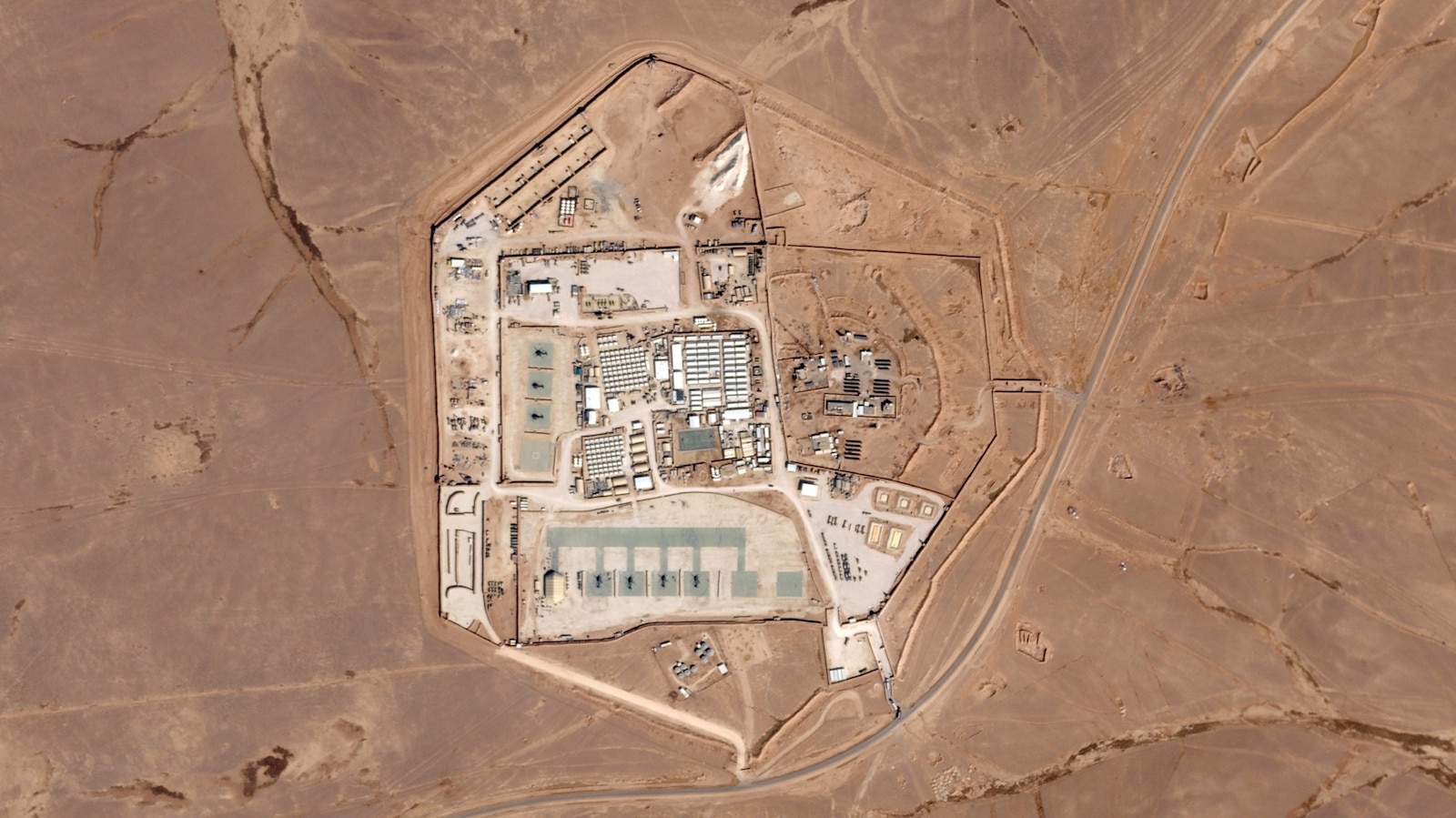The U.S. response to a drone attack that killed three American service members in Jordan last weekend will be carried out “over the course of several days” and striking “multiple targets,” a U.S. official told ABC News Tuesday.
“These are going to be very deliberate targets — deliberate strikes on facilities that enabled these attacks” on U.S. forces, said the official, speaking on condition of anonymity in order to discuss sensitive details.
Officials would not say whether any of the targets would be inside or outside Iran.
Leaving the White House Tuesday morning, President Joe Biden said he had decided how the U.S. would respond to the attack by Iran-backed militants, but gave no more details.

President Joe Biden speaks to reporters before boarding Marine One on the South Lawn of the White House in Washington, Jan. 30, 2024.
Mandel Ngan/AFP via Getty Images
When asked if Iran is responsible, he said Tehran is arming these proxy groups. “I do hold them responsible in that they’re supplying the weapons to the people who did it,” he said.
At the same time, he told reporters the U.S. is not “looking for” a “wider war in the Middle East.

This satellite photo from Planet Labs PBC shows a military base known as Tower 22 in northeastern Jordan, on Oct. 12, 2023. Three American troops were killed and “many” were wounded, Jan. 28, 2024, in a drone strike in northeast Jordan near the Syrian border, President Joe Biden said.
Planet Labs PBC via AP, FILE
Details about how an enemy attack drone was able to reach a remote U.S. military base in Jordan were still trickling in Tuesday, as the military continued its investigation.
According to three officials, speaking on condition of anonymity in order to discuss sensitive battlefield details, the one-way enemy attack drone approached the base around the same time as a U.S. surveillance drone, causing confusion and preventing the U.S. from deploying air defenses.
The enemy drone hit the living quarters of the base early in the morning Sunday while troops were still sleeping, wounding at least 40 and killing three.
The Pentagon on Monday announced the names of the three Army reservists killed as Sgt. William Jerome Rivers, 46, of Carrollton, Georgia.; Spc. Kennedy Ladon Sanders, 24, of Waycross, Georgia.; and Spc. Breonna Alexsondria Moffett, 23, of Savannah, Georgia., all from an Army Reserve engineering unit from Georgia.
The deadly attack, which several officials have described as simple luck by the enemy, is a dramatic escalation in the months-long tension between Iran-back militants and US forces stationed in Iraq and Syria.
Since mid October, there have been at least 165 attacks on U.S. troops in Iraq, Syria and Jordan. The U.S. has launched several retaliatory strikes, including in Iraq.
In response to the strikes, a spokesperson for the Iranian Mission for the U.N. said late Sunday, “Iran has nothing to do with the attacks in questions. The conflict has been initiated by the United States military against resistance groups in Iraq and Syria; and such operations are reciprocal between them.”
Gen. Robert Abrams, a retired combatant commander, said U.S. Central Command, which oversees forces in the region, will be trying to provide several military strike options to the president.
“Biden needs to send a message, but he also doesn’t want to escalate the tensions … That’s the hard conversation that is happening right now between the Pentagon, CENTCOM and the White House,” Abrams told ABC News Live.
Some Republicans have questioned Biden’s strategy in the Middle East so far, suggesting he should attack Iran more directly. Officials ABC News spoke with Tuesday would not say where the U.S. strikes might occur or whether they would target Iranian officials directly.
“We need a major reset of our Middle East policy to protect our national security interests and restore deterrence,” House Foreign Affairs Committee Chairman Michael McCaul said in a statement as House Speaker Mike Johnson called for “a crystal clear message across the globe that attacks on our troops will not be tolerated.”
In an interview taped last week with ABC’s “This Week” co-anchor Martha Raddatz, Gen. CQ Brown, chairman of the Joint Chiefs of Staff, was asked if Americans being killed in the Middle East would impact his decision making.
He said the military was doing “everything we can to protect our forces” and noted the U.S. does not want “broader conflict” in the region — and that he doesn’t believe Iran wants war with the U.S., either.
“We don’t want to go down a path of greater escalation that drives to a much broader conflict within the region,” Brown said.
Secretary of State Antony Blinken said Monday that the “could be multi-leveled, come in stages, and be sustained over time.”
“We’ve taken steps to defend ourselves and defend our partners, as well as prevent escalation,” he added. “And the president has been crystal clear: we will respond decisively to any aggression, and we will hold responsible the people who attacked our troops and do so at a time and place of our choosing.”
ABC News’ Shannon Crawford contributed to this report.

